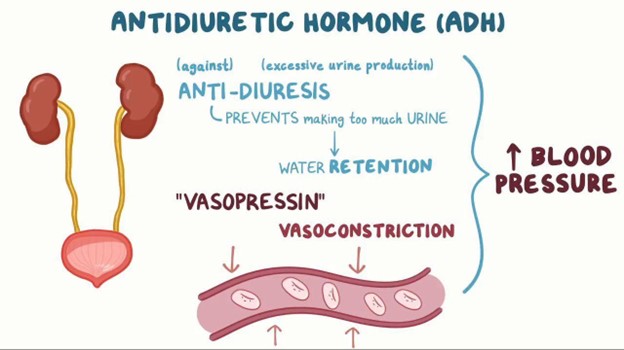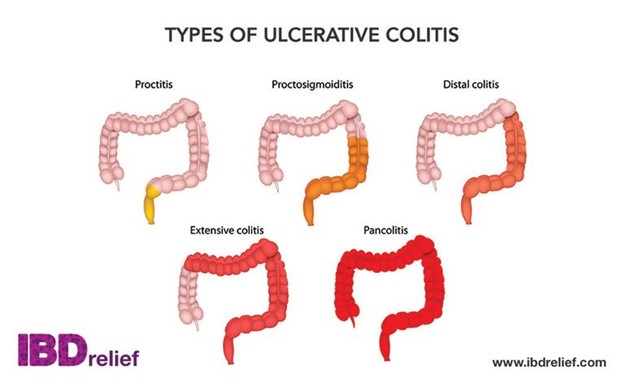A nurse is reviewing data for a client who has a head injury. Which of the following findings should indicate to the nurse that the client might have diabetes insipidus?
Urine output 800 mL/hr
Blood glucose 198 mg/dL
Serum sodium 145 mEq/L
Urine specific gravity 1.028
The Correct Answer is A
Choice A Reason: Urine output 800 mL/hr is a sign of diabetes insipidus, as it indicates that the kidneys are producing large amounts of diluted urine due to the lack of antidiuretic hormone (ADH) or its action.
Choice B Reason: Blood glucose 198 mg/dL is not a sign of diabetes insipidus, but it may indicate diabetes mellitus or hyperglycemia.
Choice C Reason: Serum sodium 145 mEq/L is not a sign of diabetes insipidus, but it is within the normal range (135-145 mEq/L).
Choice D Reason: Urine specific gravity 1.028 is not a sign of diabetes insipidus, but it indicates concentrated urine due to dehydration or other causes.

Nursing Test Bank
Naxlex Comprehensive Predictor Exams
Related Questions
Correct Answer is A
Explanation
Choice A Reason: Managing diarrhea is the priority goal for the client's care, as it helps to prevent dehydration, electrolyte imbalance, malnutrition, and infection.
Choice B Reason: Promoting rest and comfort is an important goal for the client's care, but it is not the priority, as it does not address the underlying cause of the exacerbation.
Choice C Reason: Increasing self-esteem is a long-term goal for the client's care, but it is not the priority, as it does not affect the physical condition of the client.
Choice D Reason: Promoting self-care and independence is a long-term goal for the client's care, but it is not the priority, as it does not affect the acute symptoms of the exacerbation.

Correct Answer is A
Explanation
Choice A Reason: Checking blood sugar then eating breakfast prior to injecting insulin indicates that additional teaching is necessary, as it may cause hyperglycemia or hypoglycemia depending on the type and timing of insulin. The client should inject insulin before eating breakfast according to their blood sugar level and carbohydrate intake.
Choice B Reason: Rotating sites from arms, legs, and abdomen indicates that no additional teaching is necessary, as it helps to prevent lipodystrophy and ensure consistent absorption of insulin.
Choice C Reason: Ensuring the use of insulin syringe with units indicates that no additional teaching is necessary, as it helps to prevent dosing errors and ensure accurate administration of insulin.
Choice D Reason: Activating the safety lock on the syringe before disposing in a sharps container indicates that no additional teaching is necessary, as it helps to prevent needlestick injuries and infection transmission.
Whether you are a student looking to ace your exams or a practicing nurse seeking to enhance your expertise , our nursing education contents will empower you with the confidence and competence to make a difference in the lives of patients and become a respected leader in the healthcare field.
Visit Naxlex, invest in your future and unlock endless possibilities with our unparalleled nursing education contents today
Report Wrong Answer on the Current Question
Do you disagree with the answer? If yes, what is your expected answer? Explain.
Kindly be descriptive with the issue you are facing.
